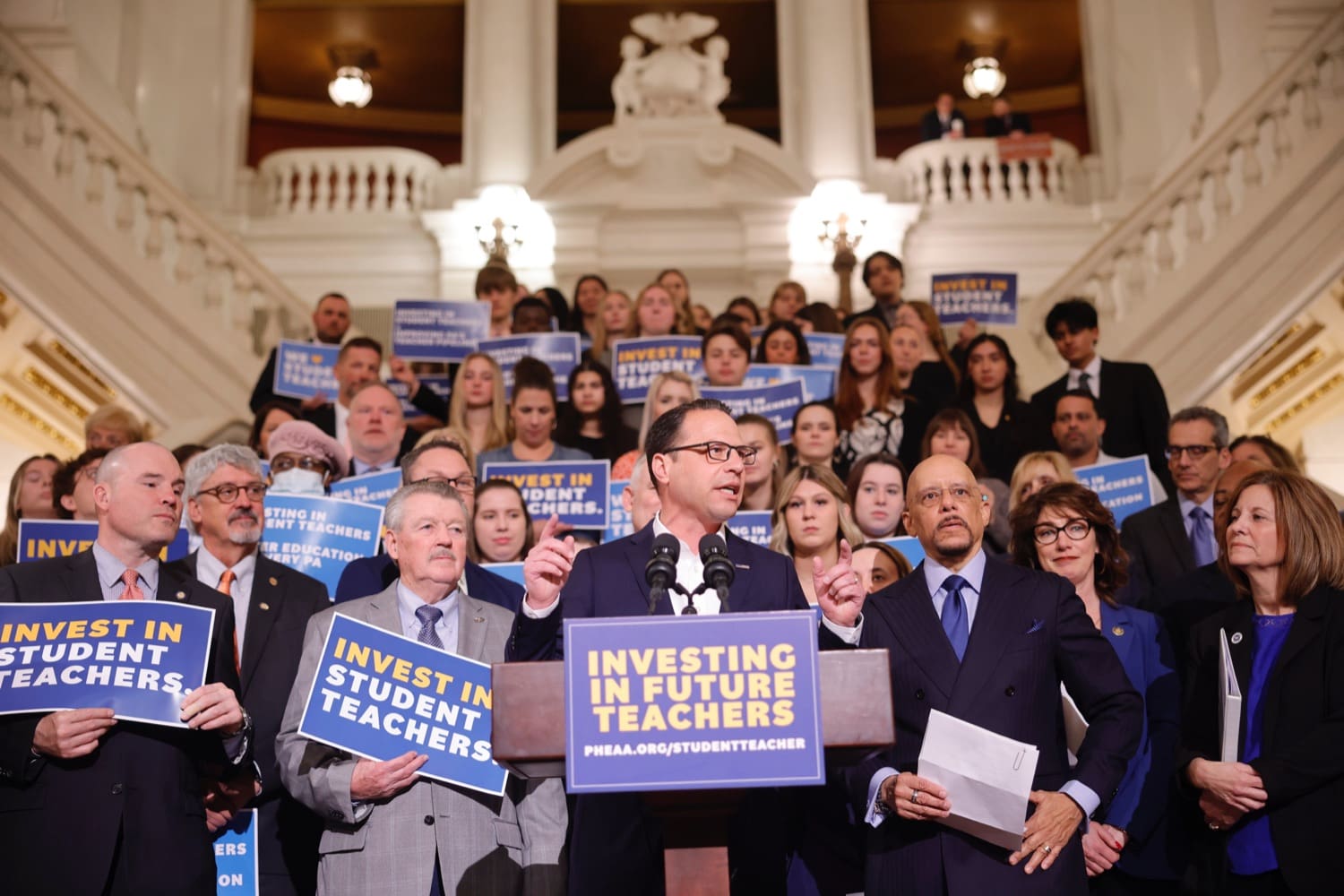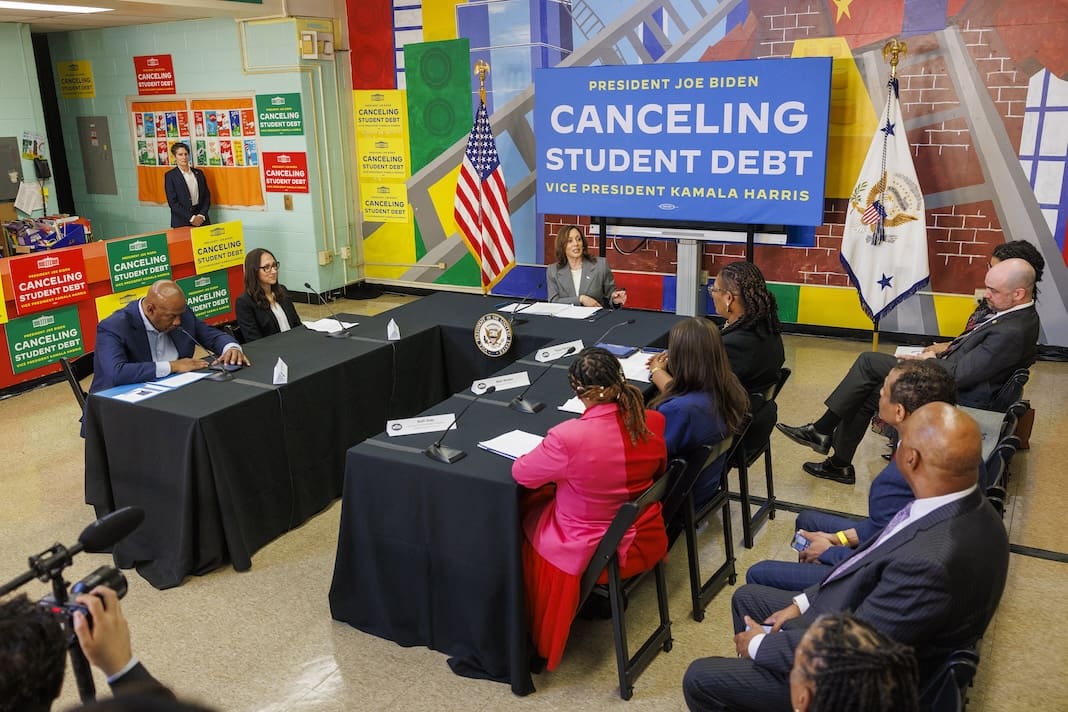Republican-led General Assembly Prioritizes Corporate Tax Cuts Over Education or Inflation in New State Budget

Anzhe Zhang
Pennsylvania lawmakers resoundingly passed the state budget bill on July 8, more than a week after the deadline, following deliberations by Republican lawmakers over whether or not to boost education spending or leave billions unspent.
The $42.8 billion general spending plan, which is underpinned by federal programs like the American Rescue Plan, comes at a moment where resources in the state are flush and readily available. Democrats pushed to use these added resources to address issues like cost of living and education funding. But the Republican-led General Assembly has not put them in use.
The passed budget provided no outline for relief for families struggling with inflation, and despite a boost in education funding, the state legislature’s approved amount is still less than half of what Gov. Tom Wolf (D) requested for Pennsylvania’s public schools.
Instead, this budget focuses on Republican legislative priorities, including a corporate tax cut that will not only increase taxes for working and middle-class residents, but also diminish the state’s $2.1 billion rainy day fund. The corporate tax rate currently sits at 10 percent and would drop by one half to a full point annually, until it bottoms out at five percent under this new plan. Budget experts project that the new corporate tax cut will lead to a statewide loss of $250 million in revenue for the first year, increasing to $2.25 billion in losses after eight years.
Due to the loss of tax income from corporations, most residents in the state will see a tax increase to make up for the revenue gap, hurting Pennsylvania’s capacity to address issues like future-proofing infrastructure and climate change.
By contrast, low-income families will receive a tax credit to assist with child care, but at a paltry $24 million in total, it will be 10 times less than the total corporate tax cut.
Republicans have opted for a 45 percent budget increase for the Education Improvement Tax Credit program (EITC), the highest increase in the program’s history, rewarding businesses with reduced taxes for helping to fund private schools. It’s a move that education advocates note favors wealthy students and exacerbates Pennsylvania’s already worsening private-public school funding gap as the program is set to allocate over $400 million in tax credits to businesses.
Sen. Lindsey Williams (D-Allegheny), noting that this will undermine public education more than the increased funding can ever account for, called the program “the single largest effort to privatize public education that the General Assembly has ever made.”
Pennsylvania ranks 45th in the nation in education spending, as the state accounts for 38 percent of public education costs, significantly lower than the 47 percent national average. Additional education measures are not included in the budget, such as investments in job and technical training or ways to mitigate the high cost of state colleges in Pennsylvania.
At the same time as the legislature voted on the budget, a last minute 11 p.m. amendment blitz sponsored by Sen. Judy Ward (R- Blair) proposed altering the state constitution to declare that residents in Pennsyvlania have no right to a legal abortion.
Galvanized by the overturn of Roe v. Wade, Republicans in the state are now pushing their anti-abortion legislation even in seemingly unrelated discussions, like state budgets. The proposal, first introduced as a separate bill called Senate Bill 956, worried advocates about the likelihood that the Assembly will find a pretense under which they can ban abortions without the governor being unable to veto it.
“This is not a bridge-naming bill that you can decide at the last minute that you forgot to add. This is a constitutional amendment, changing the constitution. They knew throughout the course of the day that this was what they were going to do,” Sen. Vincent Hughes (D-Philadelphia) said.
The amendment passed nearly on party lines, with lawmakers like Rep. Joe Emrick (R-Northampton), Rep. Valerie Gaydos (R-Allegheny), Rep. F. Todd Polinchock (R-Bucks), and Rep. Christopher Quinn (R-Delaware) among the Republican representatives who towed the party line in support of altering the state constitution.
Previously, Reps. Gaydos, Polinchock, and Emrick have all voted in support of anti-abortion bills that prohibit abortions based on a Down’s Syndrome diagnosis, while Quinn has supported a bill that would require a funeral or cremation for abortion remains.
“The huge accumulate[d] surplus gave the Republican-controlled General Assembly an extraordinary opportunity to make a difference in the lives of everyday Pennsylvanians. Sadly, they failed to take advantage of it,” an op-ed from the Keystone Research Center and PA and Budget Policy Center noted. “Given a choice between helping working people who vote for them and the corporations who give them campaign contributions, they chose to help the latter.”
Reprinted from Northwest Lake Times




